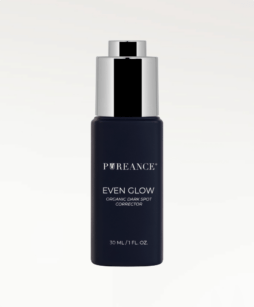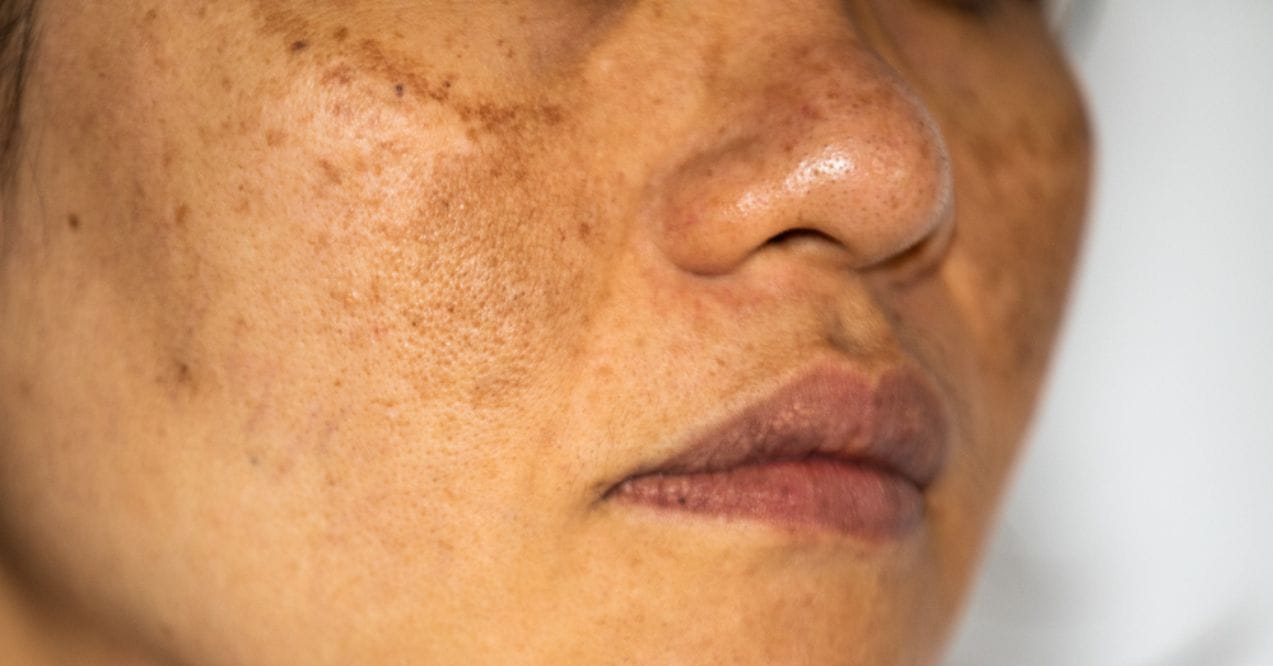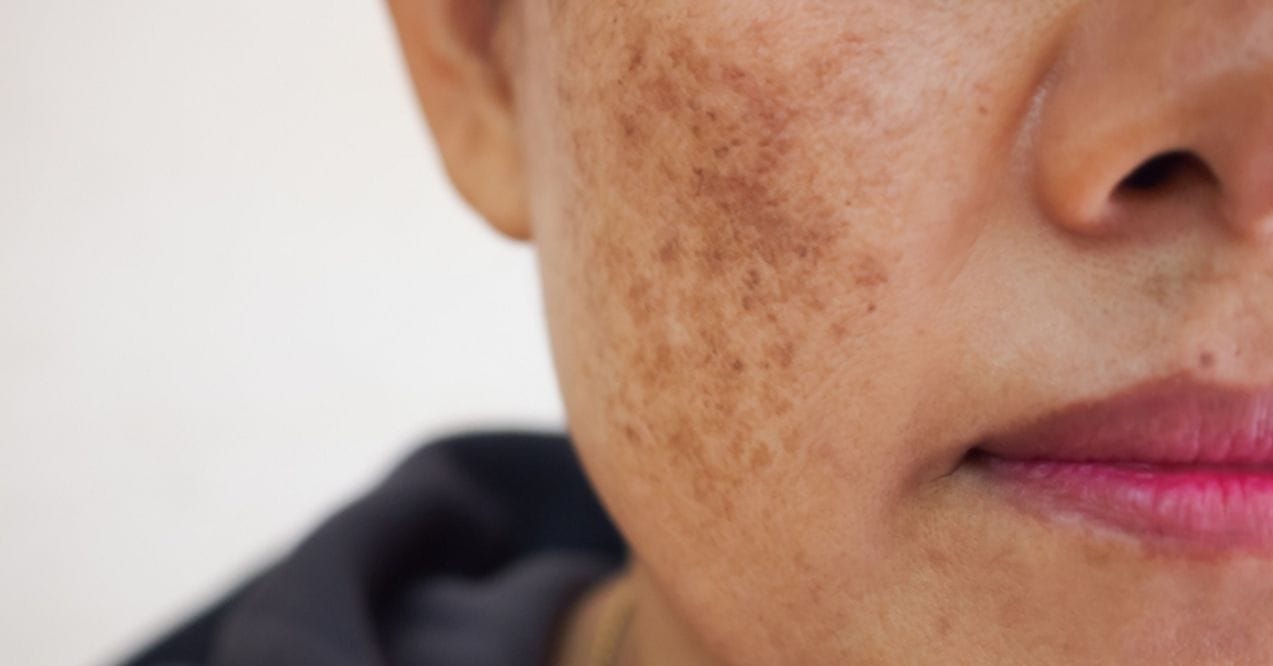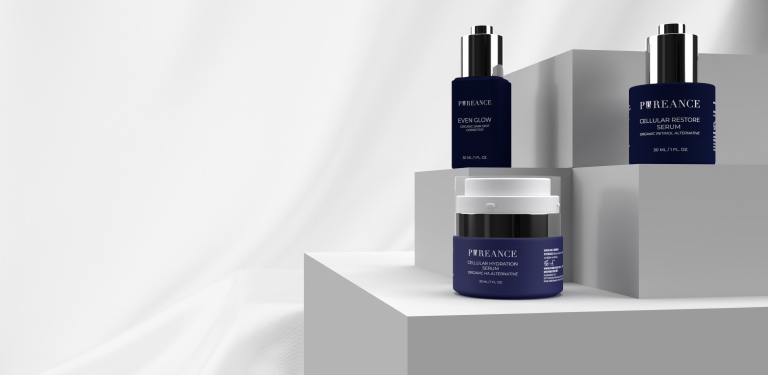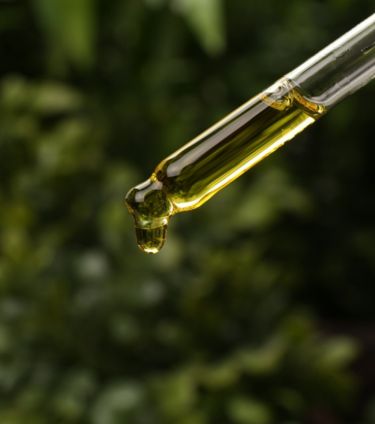


15 Best Oils for Hyperpigmentation
Oils for hyperpigmentation have gained popularity as a natural approach to addressing uneven skin tone. Hyperpigmentation, characterized by dark patches on the skin, can result from various factors including sun exposure, inflammation, and hormonal fluctuations.
While many turn to chemical treatments, natural oils offer a gentler alternative with potential additional benefits for overall skin health. These oils are rich in vitamins, antioxidants, and fatty acids that may help improve the appearance of skin tone and texture.
In this blog post, we’ll explore 15 essential oils that are frequently used to address hyperpigmentation concerns, offering a natural path to a more radiant complexion.
Key Article Findings
- Essential oils like lemon, rosehip, and carrot seed oil are effective natural remedies for reducing hyperpigmentation and improving skin tone.
- These oils are rich in vitamins, antioxidants, and fatty acids that support skin health while offering a gentler alternative to chemical treatments.
- Consistent use of essential oils can help lighten dark spots, reduce inflammation, and promote a more even complexion.
15 Essential Oils for Hyperpigmentation
Natural oils have become increasingly popular for addressing skin concerns, including hyperpigmentation. These oils contain various compounds that may help improve skin tone and texture. When used consistently and properly, they can be a gentle alternative to harsher chemical treatments. Here are 15 essential oils that are frequently used to address hyperpigmentation:
1. Lemon Essential Oil
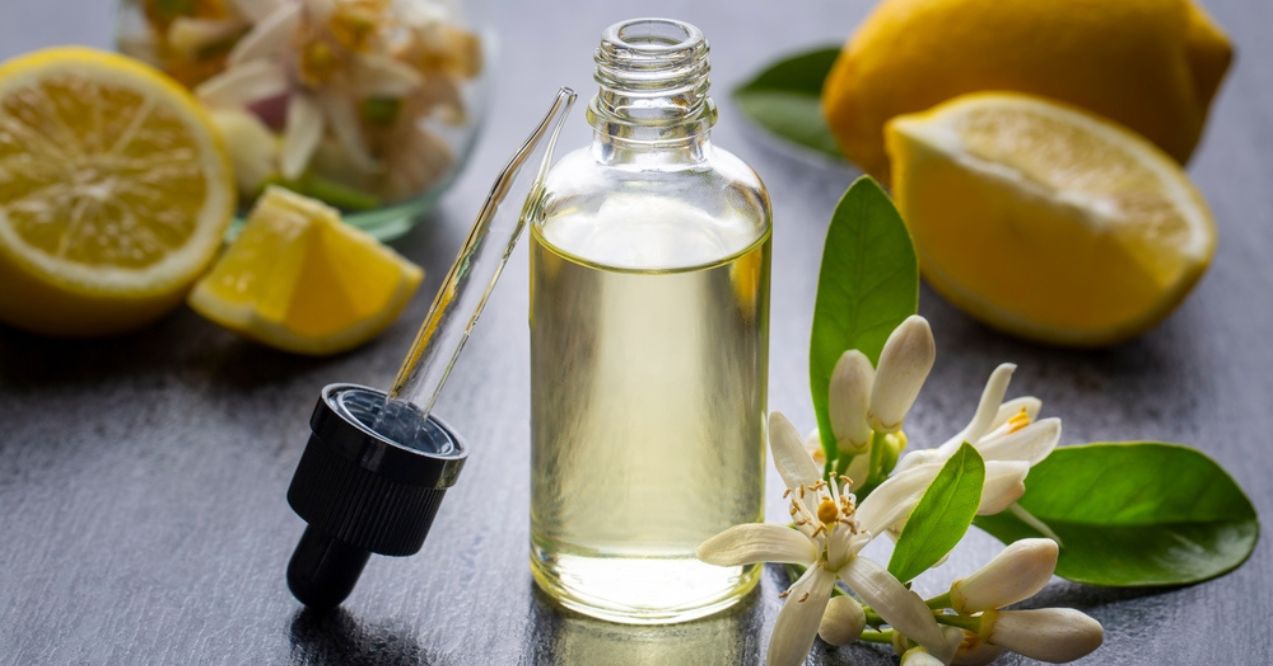
Lemon essential oil is one of the most popular oils for hyperpigmentation. Its high vitamin C content may help reduce melanin production, potentially lightening dark spots. Limonene, a compound found in lemon oil, has antioxidant properties that can protect the skin from free radical damage. The astringent properties of lemon oil may also help tighten the skin, giving it a firmer appearance.
2. Carrot Seed Oil
Carrot seed oil contains beta-carotene and umbelliferone, compounds that may protect against UV damage and reduce melanin production. These properties make it a valuable addition to skincare routines focused on hyperpigmentation. Carrot seed oil also has antimicrobial properties, which can help maintain overall skin health.
3. Rosehip Seed Oil
Rosehip seed oil for hyperpigmentation is highly regarded due to its high content of vitamins A and C. These vitamins may promote cell turnover and improve overall skin tone. Rosehip seed oil also contains trans-retinoic acid, a natural form of vitamin A, which can support skin renewal processes.
4. Lavender Essential Oil
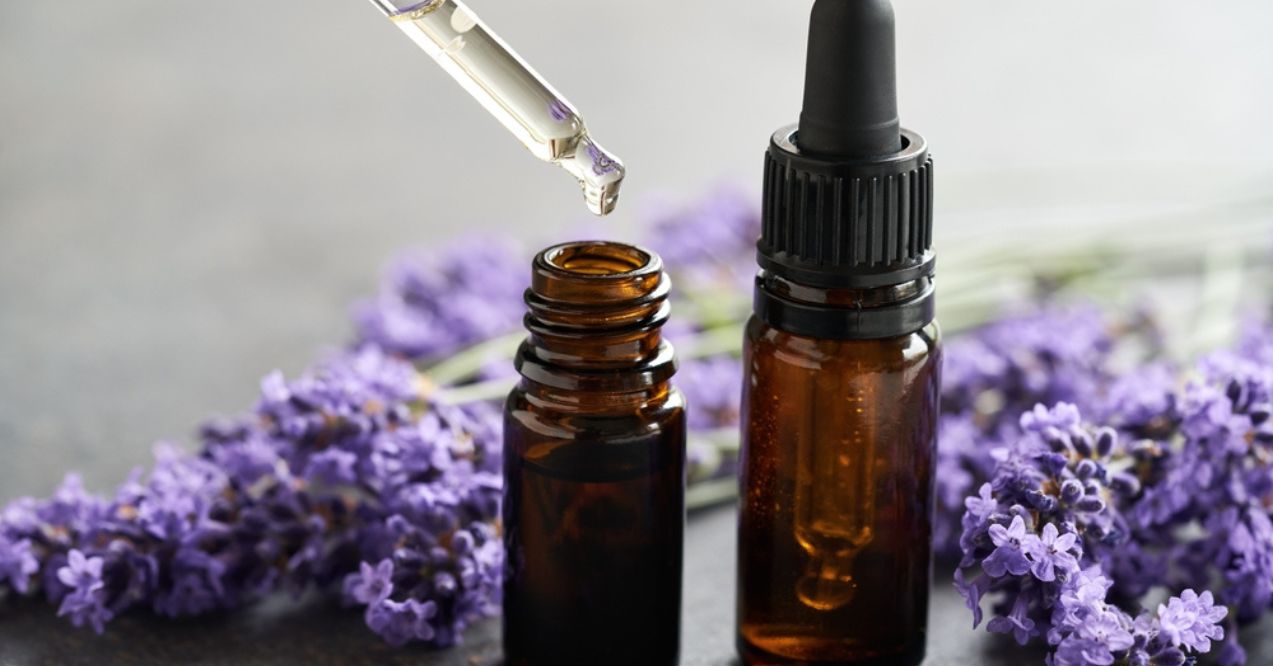
Lavender essential oil is known for its anti-inflammatory and antimicrobial properties, which may help soothe and maintain skin health. It can be particularly beneficial for post-inflammatory hyperpigmentation by potentially reducing the appearance of redness from various skin concerns. Its calming scent may also provide a sensory benefit during skincare routines.
5. Geranium Oil
Geranium oil is effective in balancing oil production and reducing inflammation, making it useful for managing hyperpigmentation. Its antiseptic properties help cleanse the skin, preventing bacterial irritations that could lead to dark spots. Additionally, geranium oil helps improve circulation, aiding the natural wound healing process and promoting a more even skin tone. Including geranium oil in your skincare routine can help maintain balanced skin and reduce the appearance of hyperpigmentation.
6. Frankincense Essential Oil
Frankincense essential oil promotes skin regeneration and reduces the appearance of dark spots. Its cell protective properties encourage the growth of new cells, making it effective for addressing hyperpigmentation. Frankincense oil also soothes the skin, improving overall skin tone and texture. Regular use of frankincense essential oil supports the skin’s natural renewal process and helps achieve a more balanced complexion.
7. Evening Primrose Oil
Evening primrose oil, rich in omega-6 fatty acids, helps inhibit melanin production, defending against the formation of dark spots. Its soothing properties reduce redness and inflammation, making it suitable for irritated skin. Evening primrose oil provides a gentle solution for hyperpigmentation, especially for those with sensitive skin.
8. Tea Tree Oil

Tea tree oil is effective in reducing post-inflammatory hyperpigmentation, especially from acne. Its antimicrobial and anti-inflammatory properties combat the bacteria that cause acne and soothe inflamed skin, minimizing the risk of dark spots forming. Using tea tree oil for hyperpigmentation can help achieve clearer, more even-toned skin. Among essential oils for hyperpigmentation, tea tree oil is notable for addressing both acne and pigmentation issues.
9. Sandalwood Oil
Sandalwood oil regulates pigmentation and evens out skin tone. Its anti-inflammatory and antimicrobial properties soothe irritated skin and reduce redness, promoting a more uniform complexion. Regular use of sandalwood oil can lead to a smoother, more balanced skin tone, making it a popular choice among oils for hyperpigmentation.
10. Tamanu Oil
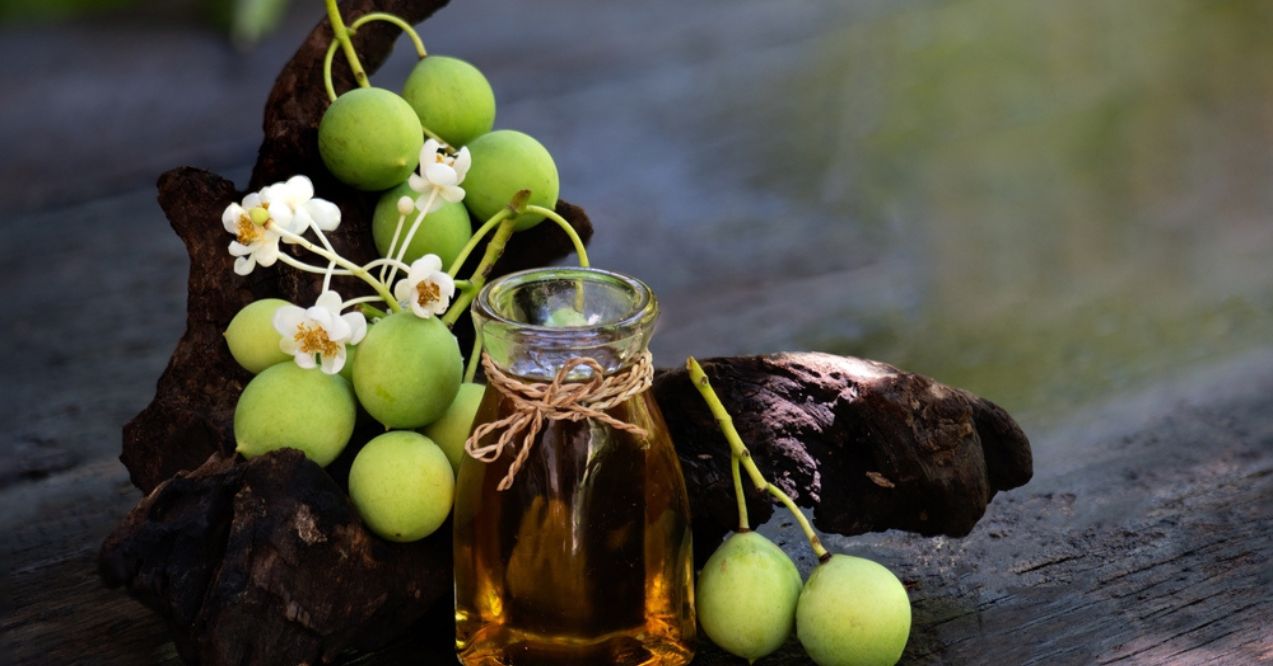
Tamanu oil, rich in calophyllolide, has strong anti-inflammatory properties. This oil helps fade dark spots and scars by supporting the skin’s natural repair processes. Using tamanu oil can improve the appearance of hyperpigmentation and promote a more even skin tone.
11. Citrus Aurantium Dulcis (Orange) Peel Oil
Citrus Aurantium Dulcis (Orange) Peel Oil is rich in antioxidants and vitamin C, which are essential for brightening the skin and reducing dark spots. This oil helps to promote collagen production, which is crucial for maintaining skin elasticity and firmness. Additionally, orange peel oil has detoxifying properties that help cleanse the skin, removing impurities that can contribute to hyperpigmentation. Its high antioxidant content also protects the skin from free radical damage, supporting a more even and radiant complexion.
12. Psoralea Corylifolia (Babchi) Seed Oil
Psoralea Corylifolia (Babchi) Seed Oil is notable for its content of bakuchiol, a natural alternative to retinol. Bakuchiol helps improve skin texture and reduce hyperpigmentation by promoting cell turnover and reducing melanin production. This oil also has strong anti-inflammatory and antioxidant properties, making it effective in soothing the skin and defending against free radical oxidative stress. Regular use of babchi seed oil can enhance skin clarity and even out skin tone, making it a valuable addition to skincare routines targeting hyperpigmentation.
13. Castor Oil
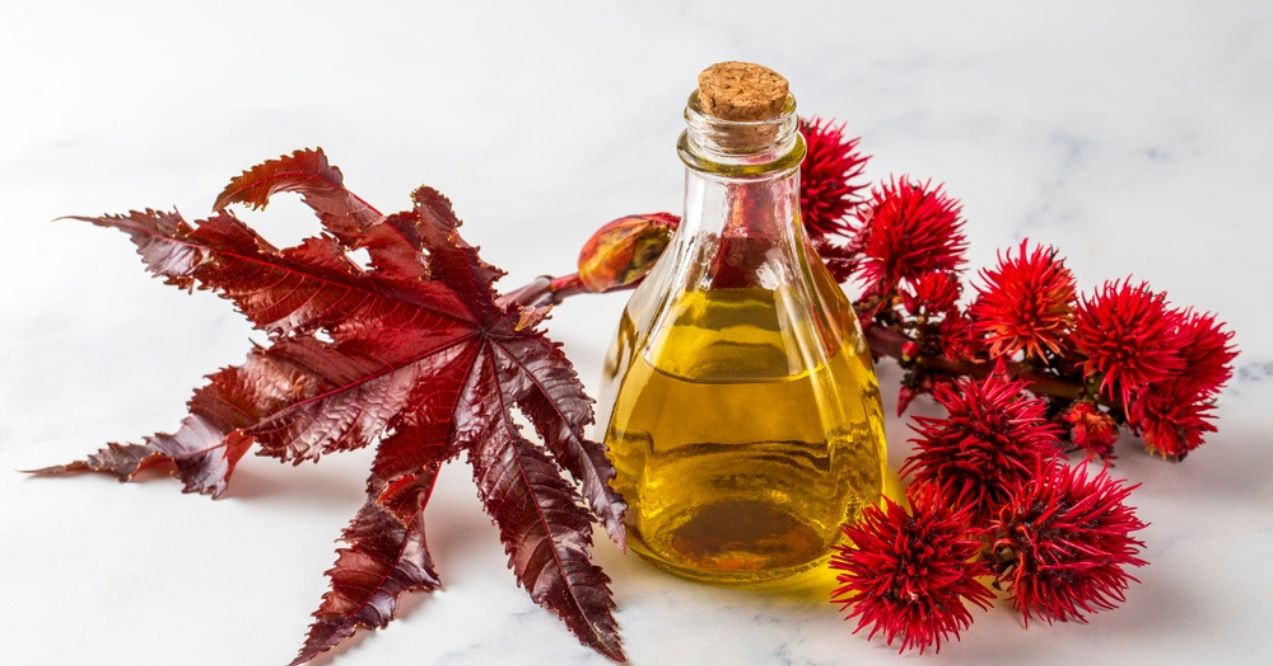
Castor oil is effective in managing hyperpigmentation due to its content of ricinoleic acid. This compound helps reduce inflammation and promotes healthy skin. Castor oil enhances the absorption of other oils, making it a beneficial carrier oil for essential oils for hyperpigmentation. Its thick consistency provides a protective barrier, locking in moisture and improving skin texture. Using castor oil for hyperpigmentation may support overall skin health, making it a useful ingredient in treatments aimed at reducing dark spots.
14. Coconut Oil
Coconut oil is well-known for its moisturizing properties and its ability to protect the skin barrier. It contains lauric acid, which has antimicrobial properties that help defend the skin against bacterial irritations and inflammation that can lead to hyperpigmentation. Coconut oil for hyperpigmentation works by keeping the skin hydrated and supporting its natural wound healing processes. Its emollient properties ensure that the skin remains soft and supple, which helps in maintaining an even skin tone. Coconut oil is a versatile oil that can be used alone or as a carrier oil for other essential oils.
15. Turmeric Oil
Turmeric oil is a potent essential oil that contains curcumin, known for its powerful anti-inflammatory and antioxidant properties. These properties help reduce hyperpigmentation and even out skin tone. Turmeric oil can also help in reducing the appearance of scars and improving the overall radiance of the skin by promoting a healthier, more even complexion. Its use in traditional Ayurvedic medicine for treating various skin issues highlights its efficacy and long-standing reputation. Regular application of turmeric oil can significantly improve the skin’s appearance by addressing dark spots and promoting a brighter, more even skin tone.
Conclusion
Incorporating the best oils for hyperpigmentation into your skincare routine can be a powerful and natural way to address uneven skin tone. Oils like lemon, rosehip, and carrot seed are rich in nutrients that not only help lighten dark spots but also enhance overall skin health. By consistently using these oils, you can achieve a more even and radiant complexion without relying on harsh chemicals. Embracing the benefits of these natural remedies offers a gentle yet effective approach to managing hyperpigmentation and improving your skin’s appearance.
Essential oils help with hyperpigmentation by reducing melanin production, promoting skin cell turnover, and soothing inflammation. They contain antioxidants and anti-inflammatory compounds that improve skin tone, reduce dark spots, and support overall skin health naturally.
Dilute essential oils with a carrier oil before applying to the skin. Apply the mixture to affected areas daily, ensuring a patch test is done first. Consistent use can help improve skin tone and reduce dark spots.
Yes, essential oils can cause skin irritation, allergic reactions, or sensitivity, especially if undiluted. Always perform a patch test, dilute with a carrier oil, and consult with a healthcare provider if you have sensitive skin or underlying conditions.
Yes, mixing different essential oils can enhance their benefits for hyperpigmentation. Combine them with a carrier oil, ensuring they are compatible and safe for your skin. Always perform a patch test to avoid potential allergic reactions or irritation.
This site offers health, wellness, fitness and nutritional information and is designed for educational purposes only. You should not rely on this information as a substitute for, nor does it replace, professional medical advice, diagnosis, or treatment. If you have any concerns or questions about your health, you should always consult with a physician or other health-care professional. Do not disregard, avoid or delay obtaining medical or health related advice from your health-care professional because of something you may have read on this site. The use of any information provided on this site is solely at your own risk.
Nothing stated or posted on this site or available through any services are intended to be, and must not be taken to be, the practice of medical or counseling care. For purposes of this agreement, the practice of medicine and counseling includes, without limitation, psychiatry, psychology, psychotherapy, or providing health care treatment, instructions, diagnosis, prognosis or advice.
